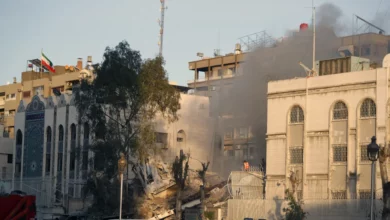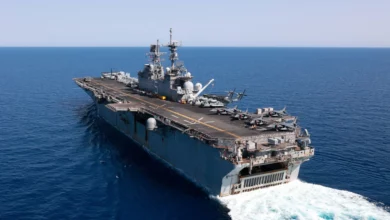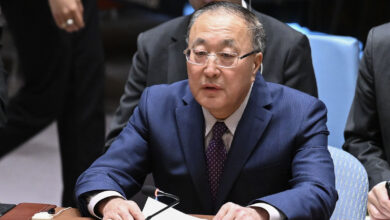
ANTAKYA, TURKEY — As darkness fell over the bus station in Antakya in southeast Turkey, the doctor, the fighter and the law student stood in a corner, chain-smoking Gitanes and speaking rapidly into mobile phones.
Minutes later, a black Mercedes Sedan with tinted windows pulled up and all three jumped in.
The men, all in their mid- to late-20s, were sent by the Free Syrian Army on a mission to purchase essential supplies and bomb-making equipment in Turkey. Once acquired, they were to take these items across the border into Aleppo, where they would be used on the frontlines of the war to overthrow Syrian President Bashar al-Assad.
Operating under EU and US policies to not sell weapons to the rebels, the FSA, which unites the different factions, has been lightly armed in the face of Assad’s military force. The struggle to obtain or manufacture weaponry has become an integral factor in the fight against the regime, which has cost the lives of more than 35,000.
With Western powers so far refusing to arm the rebels, what traditional weaponry they have, such as rifles and RPGs, has been provided principally by defectors from the Syrian army, or picked up when they have managed to overrun regime bases and raid their stores.
The rockets, artillery shells and mortars they use are almost entirely homemade, using aluminum powder and fertilizer as the explosive base. What they cannot produce themselves is anti-aircraft weaponry, and this is the reason most frequently cited by the rebels as to why they have not yet defeated the regime.
For nations who are broadly supportive of the rebels, arming them has been more politically complicated than during Libya’s civil war. A prominent jihadi faction among the rebels has alarmed policymakers in Western capitals. Added to this is a political reluctance to be once again lambasted by Russia and China for going against the will of the UN Security Council. The run up to the US presidential elections had also effectively placed the brakes on any change of direction.
However, following Barak Obama’s reelection, and David Cameron’s recent visit to Syrian refugee camps in Jordan and subsequent statements about revisiting the EU arms embargo, many analysts feel the West is on the verge of turning a corner.
This belief is further fueled by Turkey’s anger at Syrian munitions landing on its border towns and Russia’s continued violation of the UN embargo by continuing to supply the regime side with weapons.
If analysts are correct, the FSA soldiers could soon be firing stinger missiles at the Syrian air force. On their part, the rebels believe this could be a decisive development in ending Assad’s reign.
On a mission
These three men are from the Tauk Laheed brigade, which comprises fighters of diverse ideological leanings. While this particular group views Islam as an important part of Syria’s future, they are not looking for Sharia to be the bedrock of the state’s day-to-day governing.
One of dozens of well-organized logistics teams dispatched to Turkey each week by the FSA, they are part of the rebel’s desperate attempt to keep improvised munitions flowing, in a bid to counter the regime’s better equipped soldiers and militia.
On entering the car, the driver, a young man with spiky hair wearing a white and blue pin-striped shirt, turned to the others and announced: “I’m Pizza Boy. I deliver everywhere and anywhere!”
He then pulled out his mobile and, chuckling as he scrolled through his contact list, asked, “What’s it to be today? Explosions, communications, defense equipment?”
“We need various things,” said the demure, understated fighter. Barely 5-foot-6, dressed in skinny jeans, a green sweater and a black and white keffiyeh, his small stature and quiet personality belie a fierce and skilled warrior. His colleagues claimed he single-handedly destroyed 15 tanks with rocket-propelled grenades in the last six months.
After a moment’s thought, Pizza Boy replied, “Then you need Big Uncle.”
The Mercedes travelled a few blocks before coming to rest in a busy market street, just outside a pastry shop. The doctor, bespectacled and earnest, got out. “I’ve arranged to meet a contact and buy antibiotics and blood. Tomorrow, I’ll hide the supplies, wrapped in silk shawls, and take them across the nearest border crossing to one of our field hospitals in Aleppo,” he explained before disappearing into the night.
The car sped on through the dark streets, as hardware and clothing shops pulled down their shutters and closed for the day. Ten minutes later, the two men who had stayed in the car got out at a dilapidated residential building close to the city center. Up two flights of stairs, they were greeted by a tall, thickset man in his 50s, sporting a neat triangular moustache above an easy, confident grin.
Hassan “Big Uncle” Assaf greeted the men warmly and led them into a sparsely furnished sitting room comprising a television, a sofa and a white plastic fold-up table at the center. On the table were samples of two of the main items they had come for: green phosphate powder and a bag full of explosive pins, essential items to build improvised artillery shells, rockets and bombs.
“Everything we buy here in Turkey is legal,” Assaf claimed, “That’s how we have to operate. The green powder is widely used as fertilizer for eggplant, the pins are extracted from the bullets for hunting rifles, and the aluminum powder we use is a common construction material. We have a Turkish contact with a warehouse where we stockpile everything, and then teams come through to pick up supplies and take them over.”
“Rich merchants from Saudi Arabia send us money every month via Western Union to keep the whole thing afloat.”
Sitting beside Hassan was the mechanical engineer, Emre Abu Isra, a key player who in the past year has designed many of the group’s improvised weapons.
The logistics team would take the materials across the border, Abu Isra explained, where they would be delivered to the “Candy Factory,” a makeshift workshop which produces 200 shells and 20 rockets a day, destined for the frontline in Aleppo.
Abu Isra says the rebels use a C8 Bulgarian molding machine to produce casings, and combine fertilizer with animal urine to make explosives. The mortars and rockets are fired out of modified water pipes on an aluminum base fitted with explosive pins for propulsion.
The improvised rockets the rebels have been forced to design are dubbed “hangovers.” They earned their nickname at the design stage, as the first models used to wind up all over the place “as if suffering the consequences of a heavy night,” Abu Isra explained. “The first soldier to fire one actually lost his leg when the rocket went full circle and came back at him.”
But the latest versions are “100 percent accurate,” he claimed. The team at the factory has even adapted some of the launchers to fire via a PlayStation controller, he said.
“Tonight we eat and sleep,” announced Assaf. “Tomorrow we’ll see about getting you everything you need.”
Early the next morning, the group gathered in the city center where they entered what ostensibly seemed to be an innocent convenience store. In the front, women stood studying shelves of perfumes and shampoos, but, through a narrow section at the back, a larger room full of military supplies came into view. Flak jackets, radios, rifle scopes and binoculars were stacked in piles, laid out on tables and hung from every wall.
The first order of the day was radios, or “fists” as the logistics team referred to them. They studied the various options before purchasing 20. These were bundled into a black plastic bag, ready to be transported that evening.
Then the waiting game began for the main objective of the mission: a 50 kilogram barrel of aluminum powder, a vital component needed to make explosive devices capable of piercing armor and even crippling tanks. In the end, it took all day — the sun had set before the call came in.
Pizza Boy pulled up by a café in the city center and took the team to a warehouse at the edge of the city. The barrel was slowly rolled out and placed in the trunk of the car alongside a series of black plastic bags containing other bits and pieces destined for the factory.
As the fighter and law student set off toward the border with Pizza Boy at the wheel, the tension in the car mounted noticeably. Throughout the day, the atmosphere had been jovial and jokey but the three men now faced the long and dangerous journey to the border, across a smuggling route and then onto the Candy Factory on the other side.
Cigarettes were lit and a mix tape of techno and hip-hop inserted into the car stereo, as Pizza Boy drove down the highway from Antakya to the border town of Kilis, never slower than 145 kilometers an hour.
As the border crossing of Bab al-Salaam approached, the fighter made a call to a contact on the other side. “We’ll be there in 20 minutes,” he said.
“Yes we will,” said Pizza Boy with a wink, “because no one knows this route like I do.”
This piece was originally published in Egypt Independent's weekly print edition.




